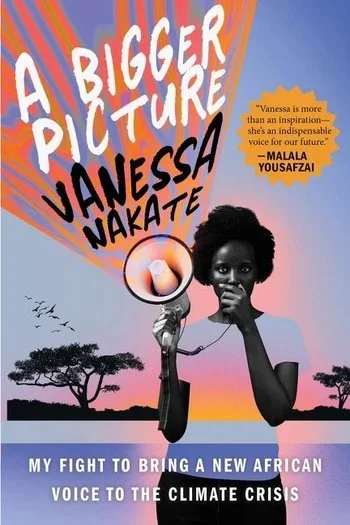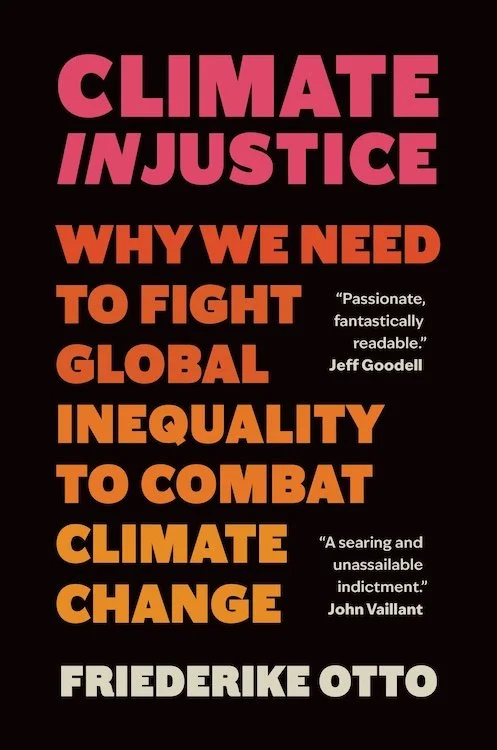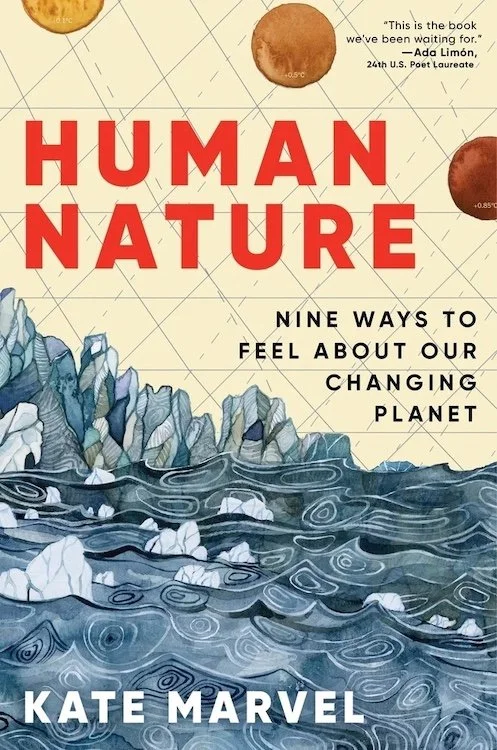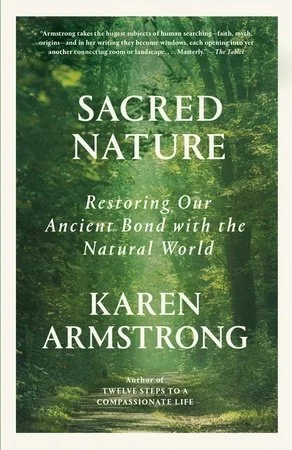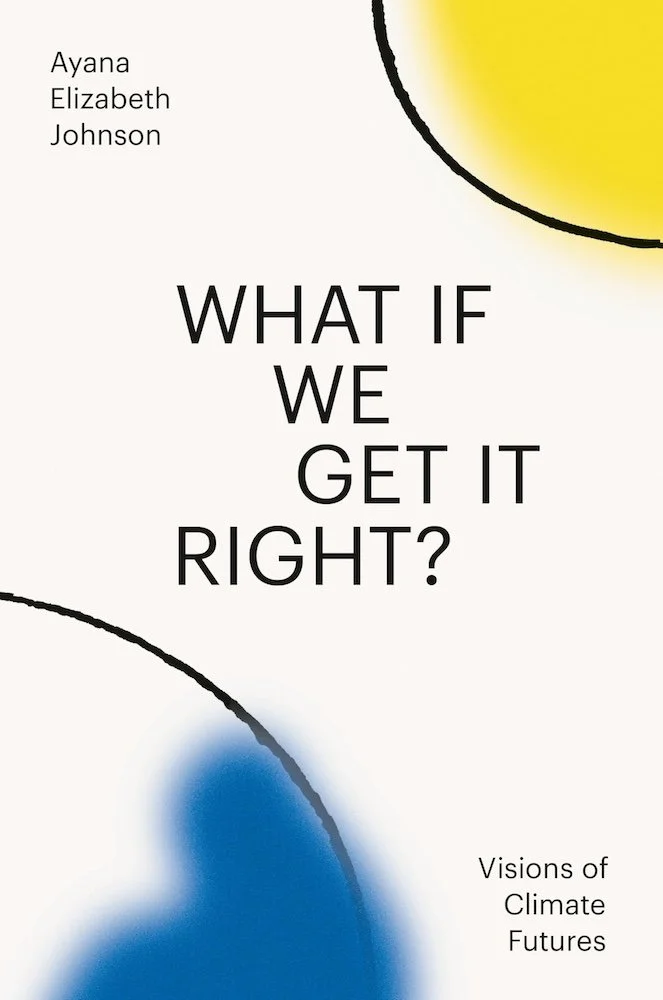It’s become a tradition to recommend reading each July, and this summer, the challenge was making choices as there are so many new books to suggest. I have chosen to focus this summer’s reading list on women authors (no surprise there) and books that offer new perspectives on the nature and climate emergency being felt by each of us.
Let me also add here a reflection on the tragic loss of lives in Texas from a flash flood bearing signs of drastic changes in the weather for all the reasons we know well, but certain leaders continue to deny. The costs in loss of life, livelihoods, and property are only going to get bigger and more widespread as the changes accelerate due to inaction — or worse, the reversal of the movement forward towards solutions.
It's important for all of us to become as knowledgeable as possible about what to expect and hopefully, through the recommended reading here and elsewhere, to find your way into becoming engaged as a “solutionist” yourself. There are many, many solutions and ways forward toward a better, healthier, safer future as the writers of these books make clear.
A Bigger Picture: My Fight to Bring a New African Voice to the Climate Crisis By Vanessa Nakate
In this powerful manifesto and moving memoir, climate activist Vanessa Nakate shares her journey from a shy little girl in Kampala to a leader on the world stage. As a young woman, she recognized that her community bears disproportionate consequences to the climate crisis. She also saw that African and Global South activists are not heard in the same way as activists from white nations.
In this powerful manifesto and moving memoir, climate activist Vanessa Nakate shares her journey from a shy little girl in Kampala to a leader on the world stage. As a young woman, she recognized that her community bears disproportionate consequences to the climate crisis. She also saw that African and Global South activists are not heard in the same way as activists from white nations.
Inspired by Greta Thunberg, Nakate began a solo Fridays for Future protest in Uganda in 2019 and founded the Youth for Future Africa and the Rise Up Movement. She is now a prominent voice at international forums such as the United Nations Climate Change Conference (COP25) and the World Economic Forum in Davos.
Nakate’s presence highlights and reveals rampant inequalities within the climate justice movement that she is working to rectify.
“There won’t be climate justice if specific groups of people are being left behind,” she says. “We are facing the same storm, but we are definitely in different boats.”
We Will Be Jaguars By Nemonte Nenquimo and Mitch Anderson
Nemonte Nenquimo was born into the Waorani tribe of Ecuador’s Amazon rainforest — one of the last to be contacted by missionaries in the 1950s. In her truly “unforgettable” memoir, Nemonte shares the lessons in foraging, plant medicines, shamanism, and oral storytelling she learned from the elders in her community.
At 14, she left for the city to study with an evangelical missionary group, but returned after “her ancestors began appearing in her dreams, pleading with her to return and embrace her own culture.”
Nemonte went on to become one of the most formidable climate change activists in the world, spearheading an alliance of indigenous nations across the Upper Amazon and leading her people to a landmark victory against Big Oil, protecting over a half million acres of primary rainforest. Her story exemplifies the power of female leadership and why it's crucial for more Indigenous perspectives to be heard and amplified.
“We women are the voices of the forest,” Nenquimo writes. “If we don’t speak for our mother, no one will.”
Climate Injustice: Why We Need to Fight Global Inequality to Combat Climate Change By Friederike Otto
Climate scientist, physicist, and doctor of philosophy Friederike Otto researches extreme weather and its effects on society. She helped develop the new field of attribution science, which allows us to know more quickly whether climate change influenced an extreme weather event. For example, record-breaking heat in Iceland and Greenland in late May was made 40 times more likely by climate change.
In her new book, Otto compares eight extreme weather events around the world — including heat waves in North America, floods in Pakistan, droughts in Madagascar, and wildfires in Australia — showing how global inequality is exacerbating the effects of climate change.
She explains how racism, colonialism, sexism, and climate change are interconnected, and how positive changes on one level can lead to positive effects on another.
“I can't recommend this book enough,” writes author and journalist Jeff Goodell. “It will change how you think about the most important story of our time.”
Human Nature: Nine Ways to Feel About Our Changing Planet By Kate Marvel
Climate scientist Kate Marvel has seen the world end before, sometimes several times a day. In the computer models she uses to study climate change, it’s easy to simulate rising temperatures, catastrophic outcomes, and bleak futures. But climate change isn’t just happening in those models. It’s happening here, to the only good planet in the universe. It’s happening to us. And she has feelings about that.
In each chapter, Marvel uses a different emotion to explore the science and stories behind climate change. As expected, there is anger, fear, and grief — but also wonder, hope, and love.
Sacred Nature: Restoring Our Ancient Bond with the Natural World By Karen Armstrong
As faithful readers know, reconnecting with nature is a personal pursuit of mine. Research studies document the real emotional and psychological benefits of time in the wild with nature, benefits that we can take back into our lives and work when we return home.
In this short but incredibly powerful book, religious historian Karen Armstrong explores our spiritual connection with nature. Drawing on her vast knowledge of religious traditions, she vividly describes nature’s central place in spirituality across the centuries.
“Much has been written on the scientific and technological aspects of climate change…. But Armstrong’s book is both more personal and more profound. Its urgent message is that hearts and minds need to change if we are to once more learn to revere our beautiful and fragile planet.” —The Guardian
What If We Get It Right? Visions of Climate Futures By Dr. Ayana Elizabeth Johnson
In one of our early Connecting Women Leaders gatherings, Indigenous leader Jade Begay challenged us to imagine "that our best times may be ahead of us!" It was an invitation to dream big and to imagine — to embrace possibility. It's certainly a founding principle for Project Dandelion, our global campaign that calls on women of the world to unite in action for a climate safe world.
In “What if We Get it Right?,” Jade is one of the “mega brain” contributors who share their ideas for moving forward, offering answers to that title question.
Editor Dr. Ayana Elizabeth Johnson describes the book as “an anthology of sorts, a mosaic — 20 interviews, 5 poems, 3 co-authored chapters, 2 artists’ new works, a note from my dad, and a quote from my mom.”
It's incredibly inspiring — a dose of positivity that I must say I've returned to over and over again in the past weeks and months. As one reviewer at The Revelator put it, “Read it and stop weeping.”
It is time to stop the “weeping” and handwringing. We are facing a catastrophic future IF we don’t take actions, but the good news is that each and every one of us can do something! We can talk about the crisis and share what we know. We can change our personal behavior and make different, more informed choices about the environmental impact of every decision we make (particularly in our investment choices). We can support the organizations and individuals who are leading the solutions and the demands for governmental and business responsiveness.
Thank you for responding to these biweekly newsletters and for all that you are doing to protect what we love, restore what we have lost, and regenerate what we need for that healthier, safer, and better future!
Onward!
- Pat
